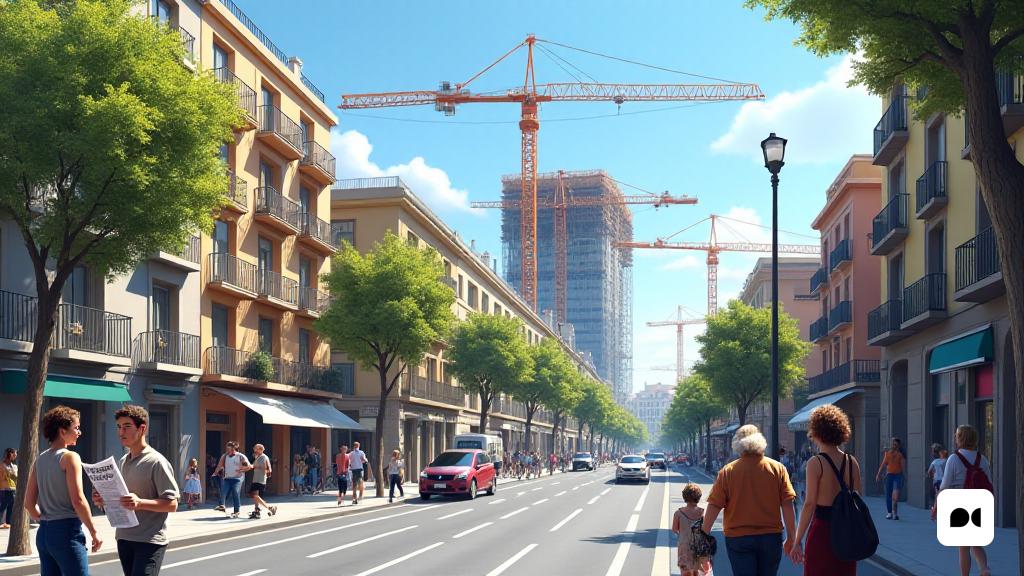Un Context Europeu Complex
The problem of housing has become one of the great challenges of the 21st century, affecting not only Catalonia, but throughout Europe. Although the causes are well known, the lack of political decision has been an important obstacle to implementing effective solutions.
The right to housing: an urgent need
The recent case of Orsola House in the Eixample of Barcelona exemplifies how the housing crisis transcends the mere economic vulnerability. The right to decent housing, as established in article 47 of the Constitution, must be guaranteed by governments in the face of the voracity of the real estate market.
The mercantilization of the home
Housing is no longer a basic right to become a market product. In Barcelona, for example, 40% of properties are owned by large investors, which makes it difficult to access housing for the middle and lower class.
A past that has not served us
Since the 1980’s, Spain has allocated € 200 billion to balance public finances, an amount that could have been invested in the construction of more than two million public homes. This investment, however, has mainly gone to tax deductions that have fed the real estate bubble.
The need for a social pact
The current housing crisis requires a comprehensive approach. A great social agreement is essential that addresses the right to decent housing as a priority, as opposed to the tendency to see it as a luxury good.
Necessary and urgent reforms
Creating an affordable housing park is not a short -term project. The initiatives announced by local governments are positive, but not enough to deal with such a critical situation.
Regulatory interventions
It is crucial to introduce measures that regulate the real estate market. The intervention, a term that generates controversy, is necessary to protect the rights of tenants and to mobilize empty housing.
The impact of the financial sector
The real estate sector must play an active role in the solution. Proposals such as ‘30%rule’ could be a way to ensure that housing is accessible to everyone.
A future that cannot be ignored
The drama of evictions is a reality that we cannot ignore. All people, regardless of their economic situation, deserve a home. Creating public offices with appropriate resources is essential to address this crisis.
Transforming the crisis into opportunity
It is time to turn this crisis into an opportunity to develop a truly effective housing policy. Only through citizen mobilization and a social agreement that prioritize human rights over economic interest can we successfully deal with this situation.

